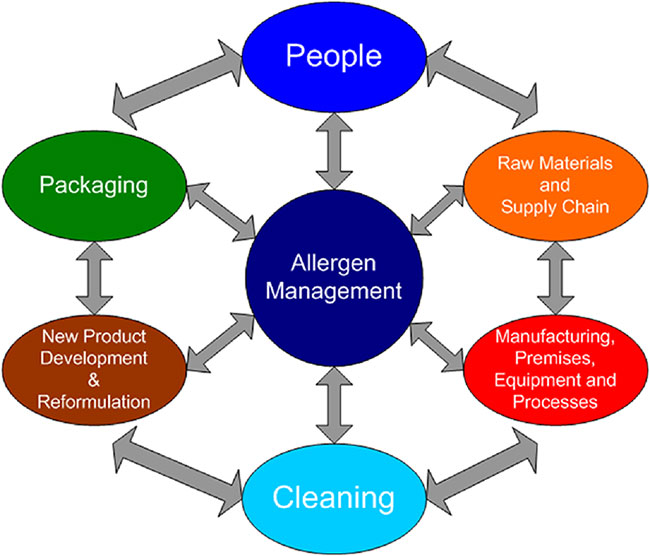Services: Other Standards
The other Management Systems developed by QSP Solutions to International Standards include:
- ISO22000:2005
- PS9000:2011
What is ISO 22000?
ISO 22000:2005 is an International Standard that integrates the principles of the Hazard Analysis and Critical Control Point (HACCP) system and the core elements of ISO9001 to provide an effective framework for the development, implementation and continual improvement of a Food Safety Management System.
Hazard analysis is the key to an effective food safety management system, since conducting a hazard analysis assists in organising the knowledge required to establish an effective combination of control measures. ISO 22000 requires that all hazards that may be reasonably expected to occur in the food chain, including hazards that may be associated with the type of process and facilities used, are identified and assessed.
What are the requirements of ISO22000?
- To plan, implement, operate, maintain and update a food safety management system aimed at providing products that, according to their intended use, are safe for the consumer.
- To demonstrate compliance with applicable statutory and regulatory food safety requirements.
- To evaluate and assess customer requirements and demonstrate conformity with those mutually agreed customer requirements that relate to food safety, in order to enhance customer satisfaction.
- To effectively communicate food safety issues to their suppliers, customers and relevant interested parties in the food chain.
- To ensure that the organization conforms to its stated food safety policy.
- To demonstrate such conformity to relevant interested parties.
How do oganisations benefit from ISO 22000 Certification?
- Customer satisfaction through delivery of products that consistently meet customer requirements, including quality, safety and legality.
- Legal compliance by understanding how statutory and regulatory requirements impact an organisation and its customers and testing compliance through internal audits.
- Improved risk management through greater consistency and traceability of product.
The food safety management system services provided by QSP Solutions include:
- Implementation and operation of Food Management System to ISO 22000.
- Identifying compliance with environmental and other regulations.
- Development of food safety management programmes.
- Delivery to staff of employee ISO 22000 and food safety awareness training sessions.
- Undertake and manage food safety internal audit programme, including audits, audit reports and support through to resolution of any issues arising.
- Liaison with the chosen certification body for certification to ISO 22000.

PS9000:2011
PS 9000:2011 is an application standard developed by the Pharmaceutical Quality Group for the manufacture of packaging materials for medicinal products and now for orally inhaled medicine. The document defines specific requirements and guidance for GMP integrated with the requirements of ISO 9001, ISO 15378 and IPAC RS.
PS 9000:2011 was updated and revised in September 2011 to include additional requirements particularly for electronic origination of artwork, the requirements of ISO 9001, ISO 15378 and also for packaging materials for Orally Inhaled and Nasal Drug Products.
Its primary objective is to facilitate risk management and implementation of a controlled system to eliminate these risks to ensure production of safe products to correct requirements.
The standard is aligned to ISO 15378 (Primary packaging materials for medicinal products) and based on these principles as well as ISO 9001. Fully recognised and supported by the MHRA, it incorporates many quality management principles in line with GMP and regulatory requirements.
The 2011 revision has added focus on electronic origination and controls and the interface with production throughout all process steps, as well as ensuring the importance of controls in terms of traceability and verification of materials throughout the process chain.
It is an interactive standard that can be applied to Global, Primary, Secondary and Complex manufacturers, each with specific requirements.
How can PS 9000 benefit my organisation?
PS 9000 is a standard relevant to all parts of the pharmaceutical industry supply chain, allowing shared knowledge, practices and implementation to manage risks and safeguard the well-being of people and business.
Whether a contractual need or simply looking to reduce overall risk to your organisation and products, there are a number of key benefits to implementing a certificated PS 9000 system.
Quality Controls - Clear implementation of practices across production process including electronic interfaces to assure quality products, fit for purpose and minimising counterfeit medicines.
Personnel/Communication - More clearly understand roles and responsibilities in terms of producing quality products.
GMP - Incorporation of specific Good Manufacturing Practice requirements which assure material are appropriate quality and correct procedures are followed in terms of checking, traceability, contamination and hygiene controls.
Risks - Structured approach to risk management and key focus on risk areas associated with packaging operations, with effective controls and activities detailed, which ultimately helps to reduce potential product and business issues.
Compliance - Used in support of regulatory compliance and identification of appropriate legislation.
Harmonisation - Helps integration of Regulatory, Quality and GMP requirements.
Commitment - Organisations need to show their compliance with all relevant statutory and regulatory pharmaceutical packaging safety and GMP requirements in addition to their own policies.
The PS9000:2011 services provided by QSP Solutions include:
- The development of Policy statements, objectives, procedures and operating procedure.
- Undertake and manage internal audit program, including audits, audit reports and support through to resolution of any issues arising.
- Liaison with the chosen certification body for certification to PS9000:2011.
- Maintenance of the PS9000:2011 Management System post certification.


 Services
Services